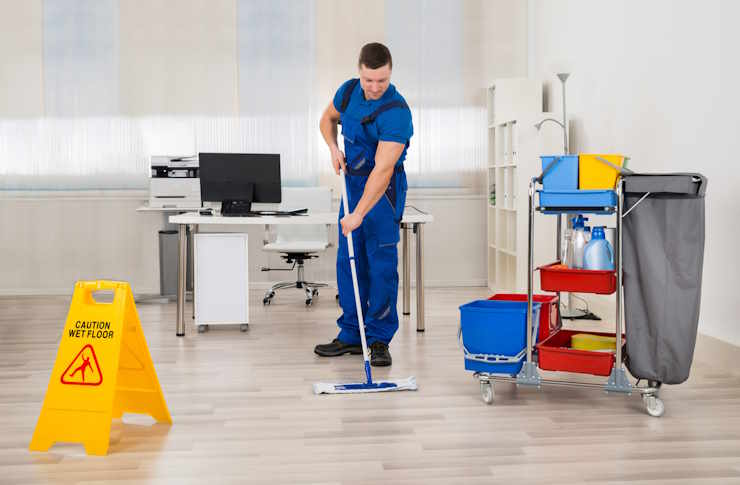Cleaning Jobs in the UK: Roles, Pay, and Flexible Schedules
Cleaning roles across the UK are in steady demand in offices, hospitals, hotels and homes. This guide explains core duties, entry routes with little experience, typical pay bands, shift patterns and essential checks, helping you assess roles that fit your availability and career plans.

Understanding the UK Cleaning Industry Landscape
The cleaning industry in the UK encompasses numerous environments, from offices and retail spaces to healthcare facilities, educational institutions, and private homes. According to industry data, the sector employs hundreds of thousands of workers across the nation. While many cleaning professionals work through agencies or larger cleaning companies, others are self-employed or directly hired by organizations. The industry information presented here offers general insights into the cleaning profession rather than specific job listings. The sector includes roles in general cleaning, specialized sanitization, waste management, and facility maintenance. This sector saw increased focus during recent health concerns, though demand varies by region and economic conditions.
Types of Cleaning Roles and Responsibilities
Cleaning work in the UK varies significantly depending on the setting. General information about common positions includes domestic cleaners who typically handle household duties such as vacuuming, dusting, and bathroom cleaning. Commercial cleaners maintain business premises, which may involve floor care, window cleaning, and sanitizing common areas. Industrial cleaning positions often require specialized training for handling machinery or hazardous materials. Specialized roles exist in healthcare facilities, where strict infection control protocols must be followed, or in hospitality settings where presentation standards are particularly high. Each position carries different responsibility levels and skill requirements. This information is provided for educational purposes about the profession rather than to advertise specific openings.
Salary Expectations in the Cleaning Profession
Compensation for cleaning work varies based on factors such as location, experience, specialization, and employer type. General industry information suggests that entry-level cleaning positions typically start around the National Living Wage, which was £10.42 per hour for workers aged 23 and over as of April 2023. Workers in London and the Southeast may receive higher rates to reflect the higher cost of living. Supervisory positions or specialized cleaning roles (such as those requiring technical certifications or handling hazardous materials) generally command higher wages. Some employers offer performance-based bonuses or increased rates for unsocial hours, though this varies by company. The salary information provided represents general industry standards rather than guarantees for specific positions.
Prices, rates, or cost estimates mentioned in this article are based on the latest available information but may change over time. Independent research is advised before making financial decisions.
Work Patterns and Schedule Flexibility
One notable characteristic of the cleaning sector is its schedule diversity. General information about work patterns indicates that early morning and evening shifts are common in office cleaning, allowing workers to clean when buildings are unoccupied. Retail cleaning often involves overnight work, while domestic cleaning typically occurs during standard daytime hours. Many employers in the sector offer part-time positions, with shifts ranging from a few hours to full working days. Some cleaning professionals piece together multiple part-time positions to create full-time employment. The industry also includes opportunities for weekend-only work or term-time positions that align with school schedules. This scheduling flexibility makes cleaning work potentially suitable for students, parents, or those with other commitments, though actual arrangements vary by employer.
Career Development Opportunities
Although often perceived as entry-level work, the cleaning industry offers potential career advancement paths. Industry information indicates that experienced cleaners may progress to team leader or supervisor roles, overseeing staff and operations. With additional training, some professionals specialize in areas such as carpet cleaning, window services for high-rise buildings, or restoration cleaning after fires or floods. Business-minded individuals sometimes establish their own cleaning companies after gaining industry experience. Various qualifications are available through organizations like the British Institute of Cleaning Science (BICSc) that can enhance career prospects. These include certificates in cleaning techniques, health and safety, and management. This information describes general career development possibilities rather than guaranteed progression opportunities at specific companies.
Finding Information About Cleaning Employment
Those interested in learning about the cleaning profession can explore multiple resources. Job information websites provide insights into typical requirements and compensation. Cleaning companies often maintain career sections on their websites with general information about working in the industry. Local employment services can provide guidance on the cleaning job market in specific areas. Recruitment agencies specializing in facilities management or hospitality often have knowledge about cleaning sector roles. Professional bodies like the British Cleaning Council offer industry reports and educational resources. Training providers may offer courses for those wishing to develop specialized cleaning skills. When researching potential employers, examining company reviews and understanding typical working conditions can provide valuable context about the profession. This information is provided for educational purposes rather than as specific job opportunities.
The cleaning industry in the UK encompasses a diverse range of roles, working environments, and employment arrangements. While entry-level positions are accessible to many, opportunities exist for specialization and advancement with experience and training. The sector’s flexibility in terms of scheduling continues to make it accessible to workers with varying availability and needs. Understanding the general landscape of cleaning work, including typical compensation structures and working patterns, provides valuable context for those considering this field as a potential career path.




